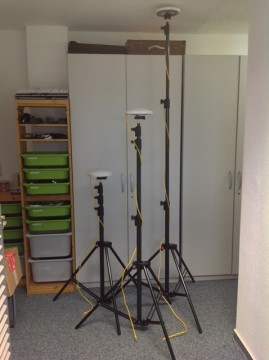Last month, I provided support at a conference center in the Netherlands for a regularly-occurring event that I have helped before. Among the attendees are many people who are a little Internet-shy, so you won’t see any pictures of the event or detailed descriptions of it here.
All of the attendees are involved in what I would describe as creative ministries that use innovative methods to reach people in challenging circumstances. Read that however you will. The event has grown each year that it has been held, and this year, nearly 400 people were present. The event’s main dilemma is finding a suitable venue. It must be out-of-the-way so as to not attract too much attention, it must provide a variety of meeting spaces, and it’s got to have good Internet access.

That last bit is where I come in. I’m not going to bore you with the details of the hurdles that we faced, but it wasn’t easy to satisfy the Internet-hungry crowd that was meeting there for ten days. It became important for me to seek creative solutions myself, manage the expectations of the event staff and attendees, and communicate clearly with the center IT staffer. Besides this, there were a few people who needed intensive work done on the computers they brought.
I was both exhausted and exhilarated. The work I did over the course of the event was the most fulfilling I had done since the last time I had helped them.

As I pondered the effect that this opportunity had on me, it reminded me of my son’s novice experiences in archery. It is far more rewarding for him to hit the center of the target than it is to hit it at the periphery—though hitting the target at all is still satisfying. Missing the target altogether is never fulfilling.
When I get to participate in events like that of last month, and use my skills as I did there, it’s like hitting the bullseye. My daily work? Well, much of the time it’s more like hitting the white and the black, to be honest. I can be content with those results, but I yearn to get closer to the center. Take a look at Jesus’ parables recorded in Matthew 25 and Luke 19, and you may get an even better sense of what I mean.


